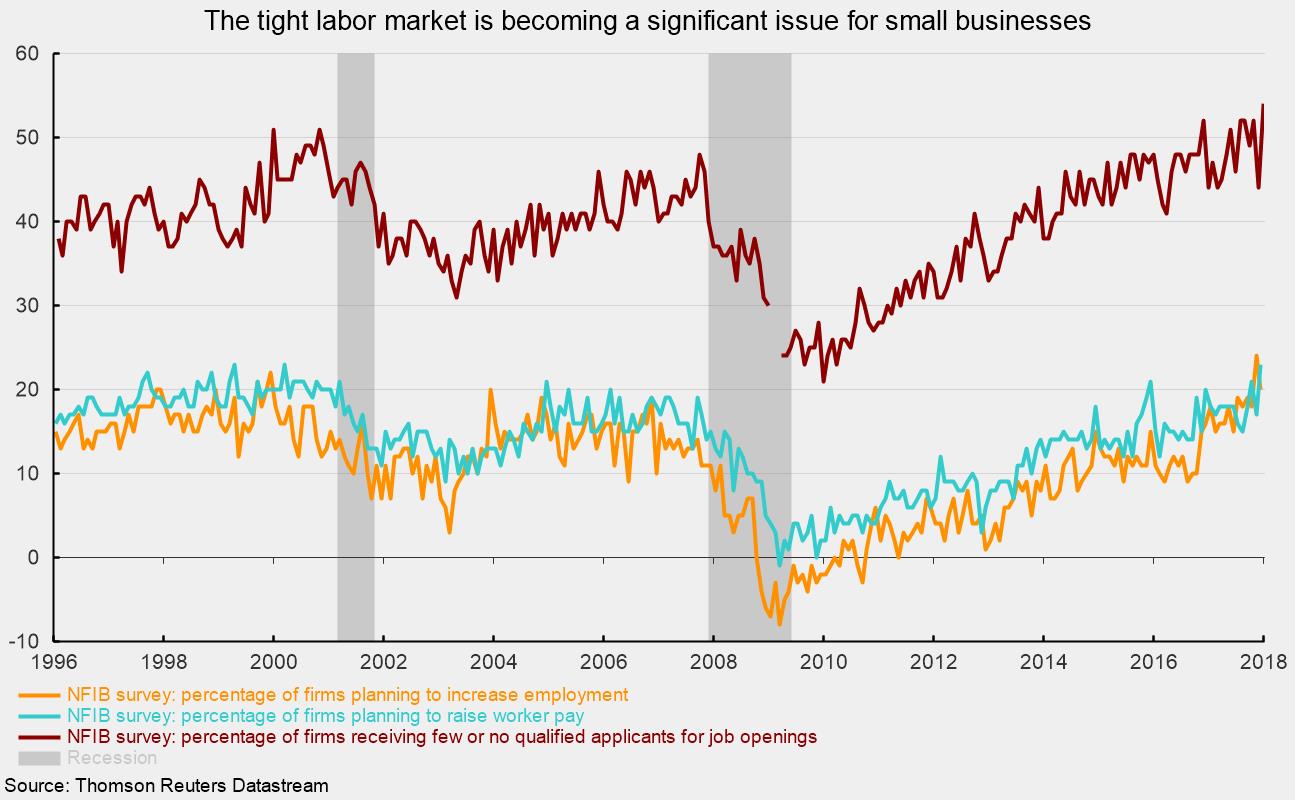Small-Business Optimism Index Posts Best Year on Record
The small-business optimism index from the National Federation of Independent Business (NFIB) fell slightly in December, coming in at 104.9 versus 107.5 in November. However, the December result was still part of a record-breaking year for the index as the annual average hit 104.8, beating the previous record of 104.6 set in 2004. While many of the individual indicators that make up the overall optimism index showed positive results, a significant concern among small businesses is the declining quality of the labor force, particularly in the context of an already tight labor market and robust plans for increased hiring in the near future.
The percentage of firms planning to increase employment fell to 20 percent from 24 percent in November. The 20 percent result is still one of the highest results on record. At the same time, the percentage of firms reporting few or no qualified applicants for job openings hit a record 54 percent in December. That combination in the labor market of healthy demand and weak supply has 23 percent of firms saying they intend to increase worker pay over the coming months (see chart). Thirty-one percent of firms report having openings they are not able to fill at the moment.
The labor-market dynamics have made quality of labor the second-most important issue for small businesses. Among the 10 issues listed in the survey, taxes still top the list at 21 percent, making it the single-most important issue. That result is about where it was a year ago but 11 percentage points below the all-time high of 32 percent. Quality of labor is now the second-most popular response, coming in at 19 percent. That percentage is up sharply from 12 percent a year ago, reflecting the significant tightening of the labor market. Quality of labor is just five percentage points below its all-time high of 24 percent.
Among the other important issues for small businesses, government regulation and red tape came in third at 16 percent, 3 percentage points below its level a year ago and 11 percentage points below the all-time high. Cost and/or availability of insurance was fourth among the list of most important issues, coming in at 10 percent, down from 8 percent a year ago and well below the high of 29 percent. The remaining important issues for small businesses all had percentages in the single digits.
Positive notes out of the report include that 37 percent of firms expect the economy to improve, a very strong result, while 28 percent expect higher real sales, 27 percent plan on making capital expenditures, and 27 percent believe now is a good time to expand.
The report is consistent with other economic data that suggest a positive outlook for the economy in the months and quarters ahead. However, tightness in the labor market, while a win for workers, is putting pressure on labor costs and profits for small businesses.



